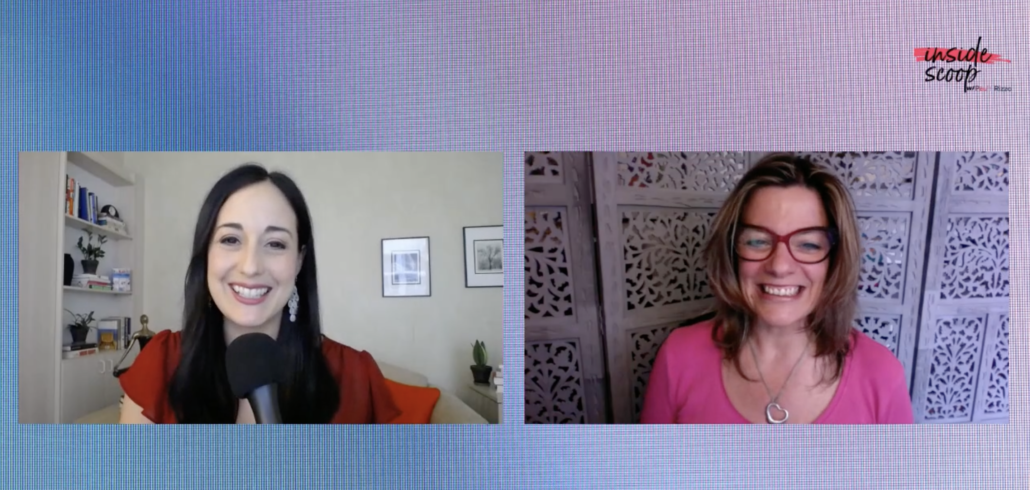We all know the difference between a work space that does and doesn’t work. It’s usually pretty intuitive — especially when you’re working in a place that is hampering your productivity.
Despite this, many people have trouble pinpointing what elements work together to create a space that does work.
Working remotely or in a hybrid model means much more control over what kind of space you’re working in — but more freedom doesn’t guarantee a positive outcome unless you’re intentional about designing your office.
Holistic interior designer Lee Wright, who joined me on my live-streaming show Inside Scoop, knows how to create positive, functional spaces.
Lee shared her top tips for designing an office space that fulfills your needs and inspires your creativity:
Create boundaries.
Lee says that she sees many people struggling with creating boundaries between their work and personal space, now that so many things are happening in the same physical environment.
“You need to have bookends, both in our space, physically in our space, and in our mental space about when you’re starting something and when you’re finishing something,” Lee said.
I used to have an office in a closet when I lived in New York City — just so I could close the doors when I finished working. Lee says physical boundaries can be powerful and help you close the door mentally as well.
You can check out that office and more tips on how to set up the best remote office in my LinkedIn Learning Course “Organizing Your Remote Office For Maximum Productivity.”
Take Feng Shui into account.
Lee studied with a Feng Shui Grand Master, and she has seen firsthand how important it is to take the energy of a space seriously. For those who are unfamiliar with Feng Shui, it is an ancient Chinese practice centered around harmony between space and human beings.
“It’s about balance. It’s about making sure that the spaces in the environments are specific for what they’re meant to do,” Lee said. “Feng Shui is about being mindful about the way your space functions first.”
But not all Feng Shui practices make sense in the 21st-century. For example, Feng Shui dictates that your desk shouldn’t be facing a window, but Lee says that having natural light can actually be great — not just for lighting on Zoom calls, but to give your eyes a rest from the artificial light of screens.
And if you don’t have an office, this still applies. If you do work from your bedroom or dining room, Lee says that you should try to have a commanding view of the space. That will help establish the right energy for productivity.
Consider your backdrop, too.
Lee works with a Moroccan hand-carved screen behind her — you can see it in our video! Lee suggests finding a soothing and simple backdrop that aligns with your aesthetic preferences.
This i an affordable fix that can transform your space.
Balance your elements.
Feng Shui is based on nature, and balance and harmony between the elements. Those are water, fire, air, earth, and metal.
To balance the elements, Lee suggests bringing in plants, a candle, a glass of water, or an aromatherapy diffuser. Having a balance will also engage all your senses, making your space both beautiful and functional.
If you found these tips helpful, you can check out my full conversation with Lee here!
__
BONUS FREEBIE: Want even more ways to stay organized, productive and less stressed? Click here to get access to my List-Making Starter Kit. It will boost your efficiency and get you back to doing more of the things you love.
__



